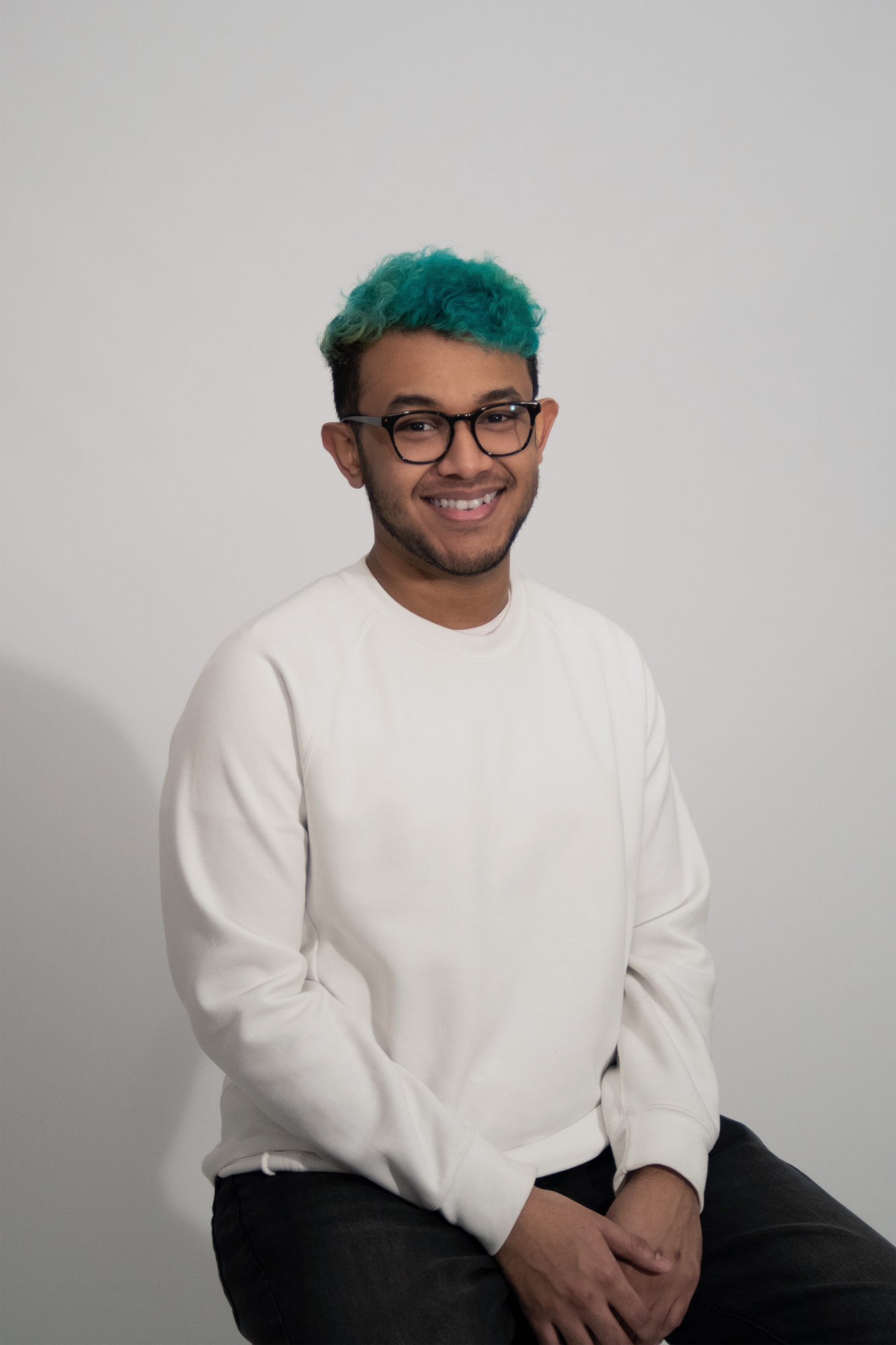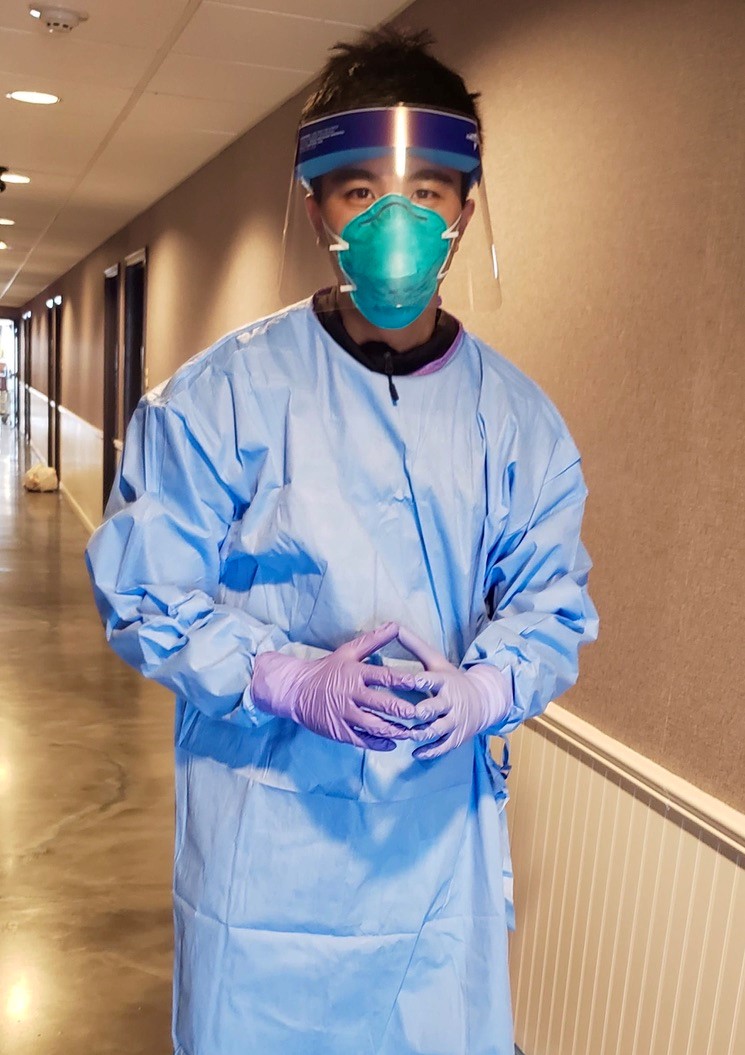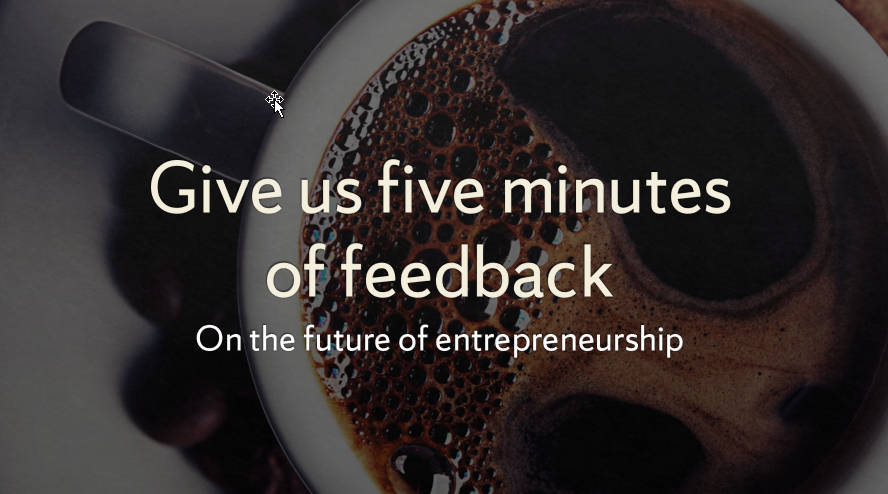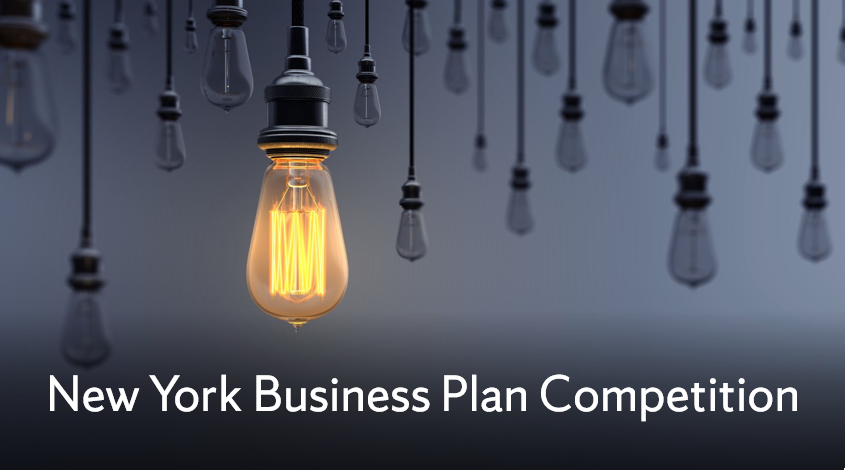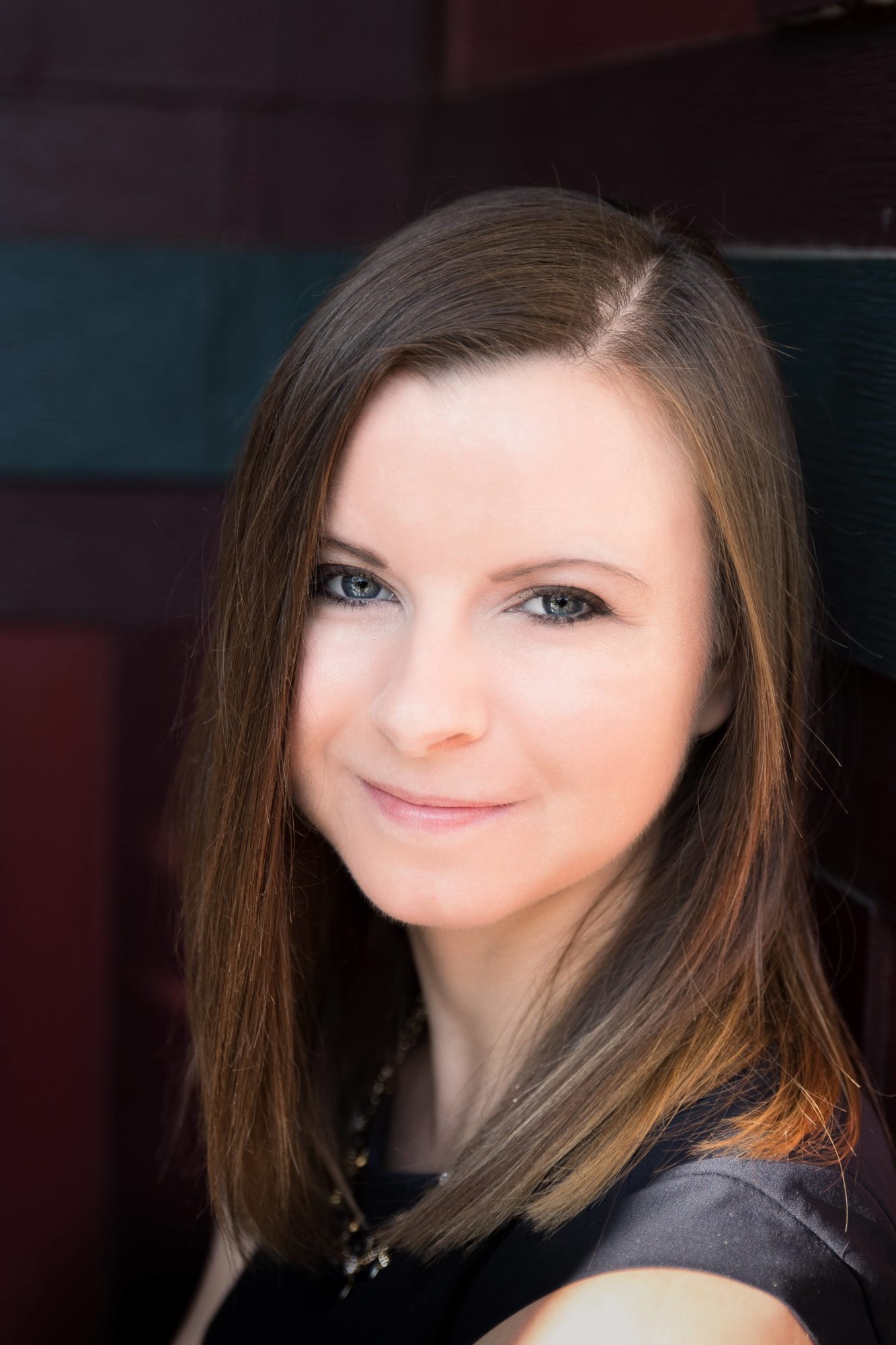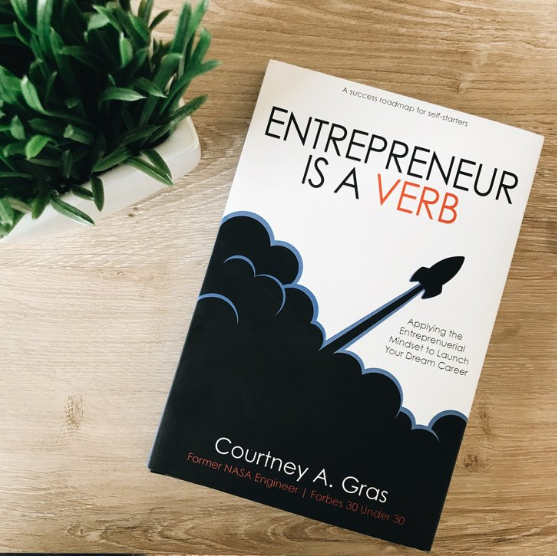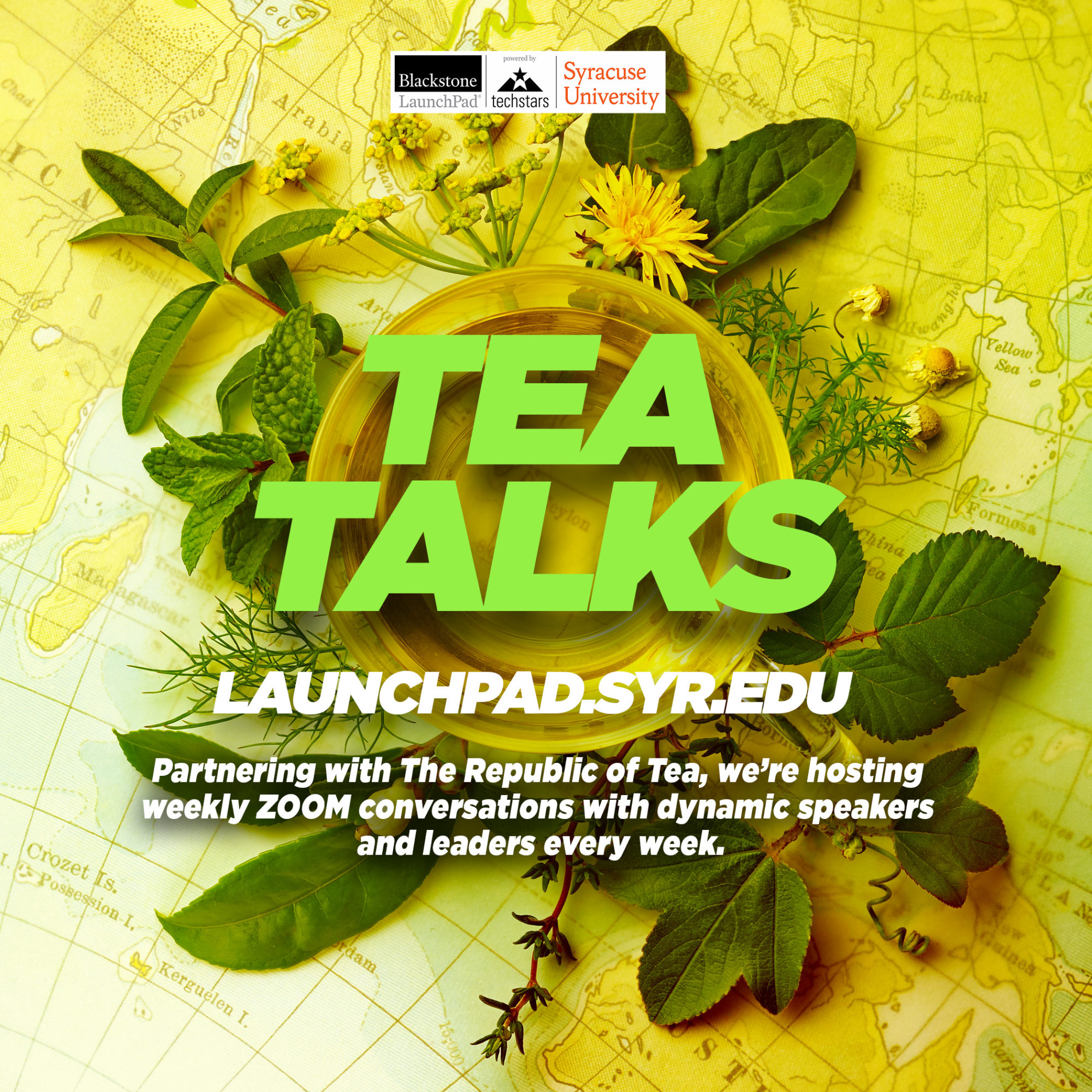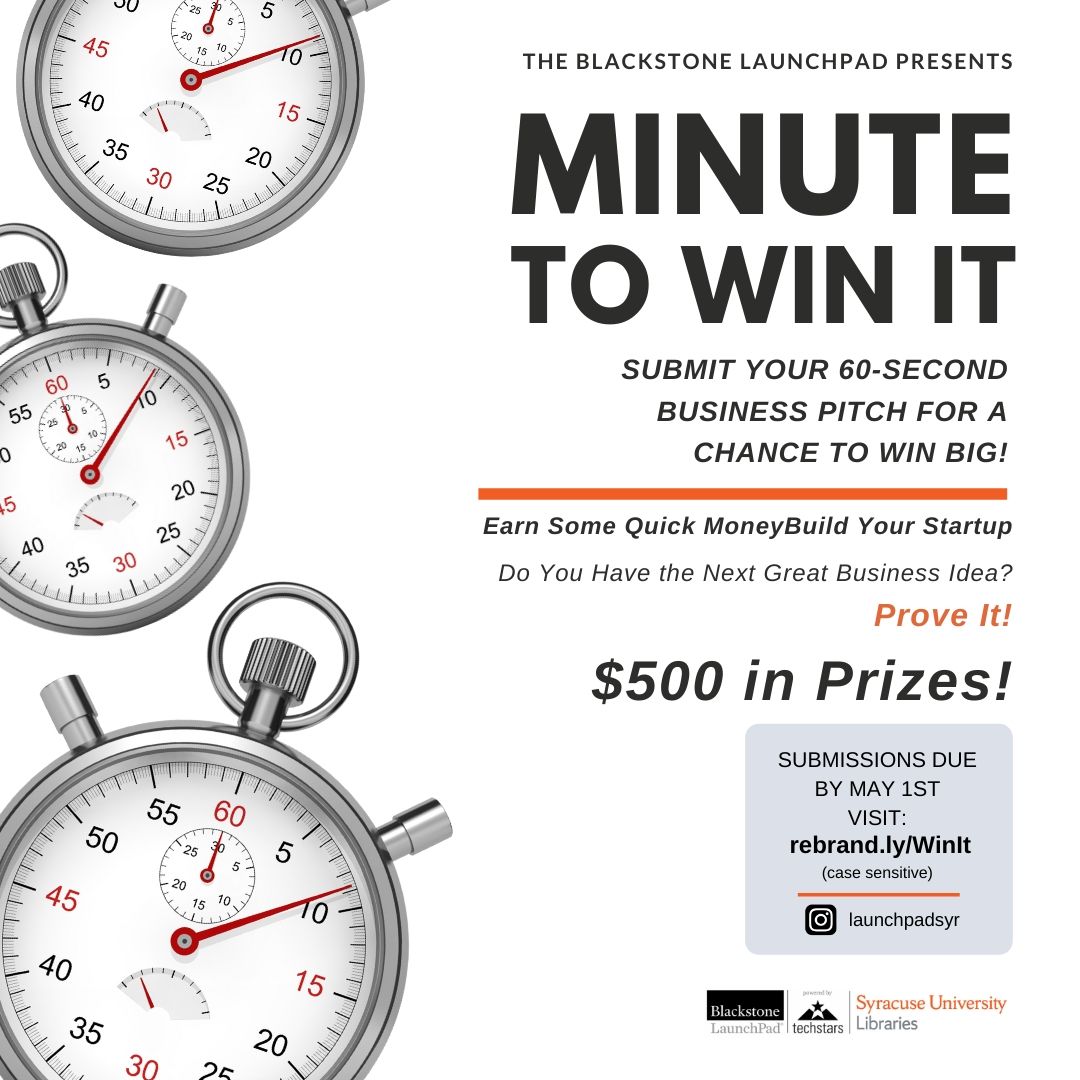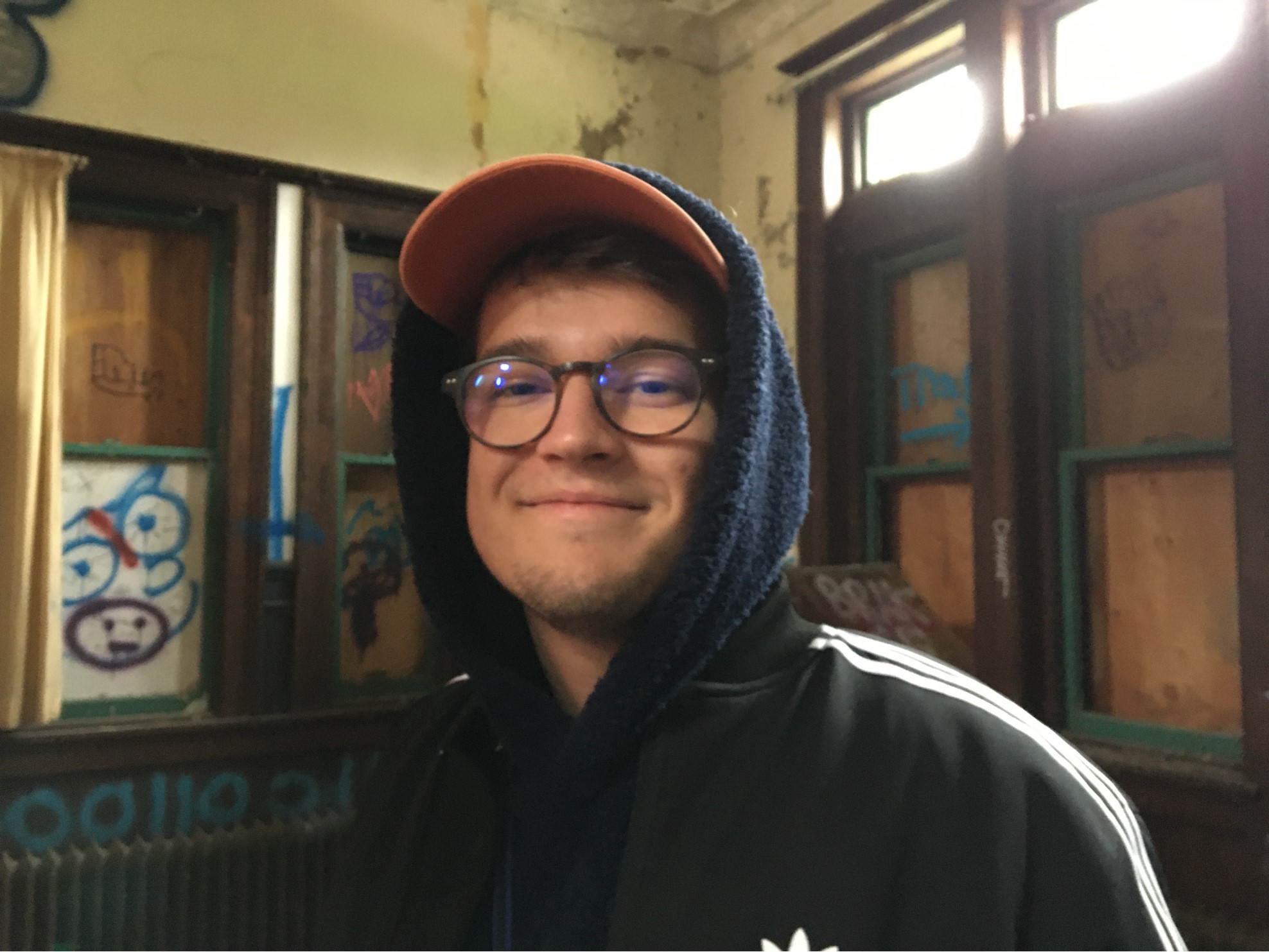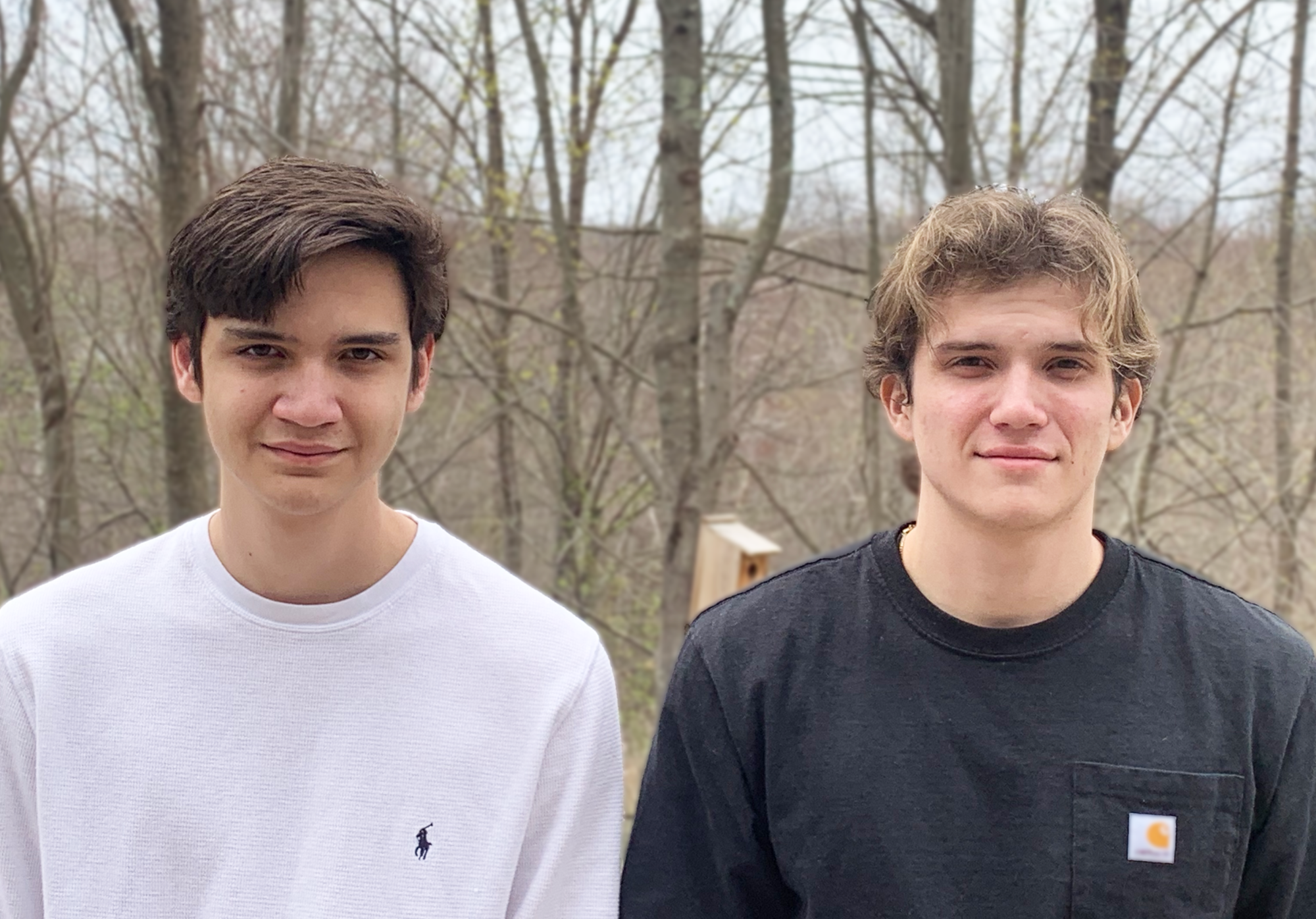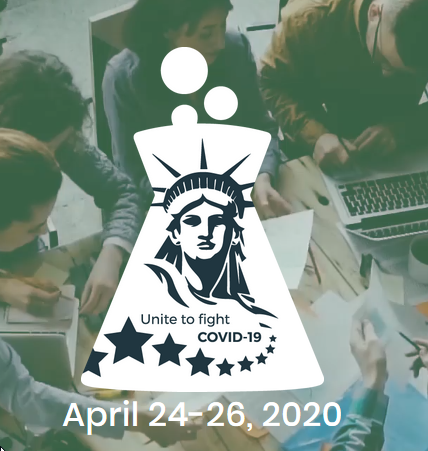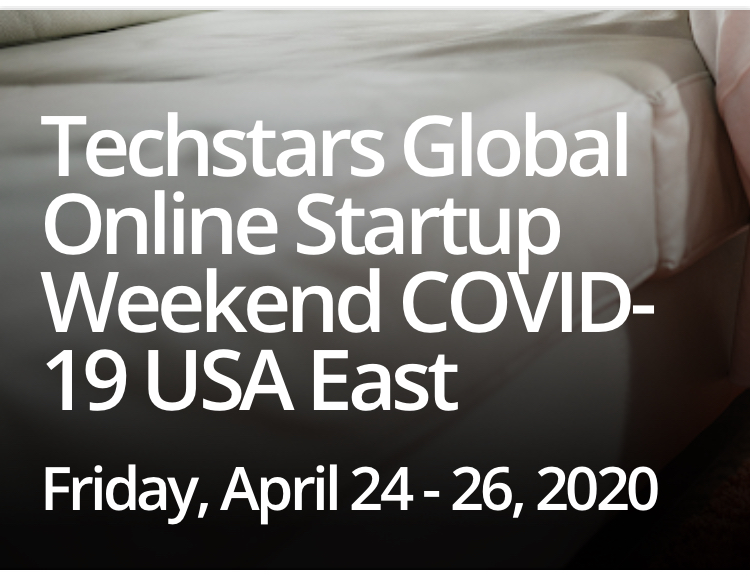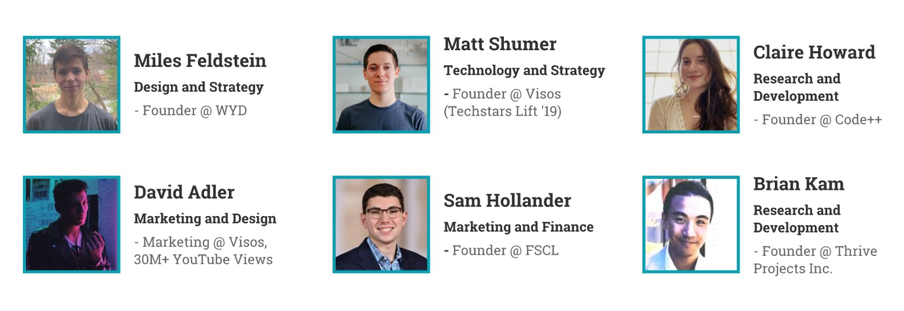
A Syracuse University group of students created one of top solutions at Techstars Startup Weekend Remote USA. The event, April 24-26, was an online, high-energy experience with 1,000 participants working over 54 hours to develop solutions that directly tackle COVID-19 related challenges.
Their solution, Global CoPower, was selected a top ten team in the east division, moving on to compete as a finalist in the national competition. The team was comprised of Matt Shumer ’22 (Whitman), Sam Hollander ’22 (Whitman and Newhouse), David Adler ’22 (VPA), Miles Feldstein ’23 (Whitman), Clarie Howard ’23 (Maxwell) and Brian Kam ’16 (Maxwell). The team are members of the Blackstone LaunchPad powered by Techstars at SU Libraries, and are all also founders of their own startups.
The team addressed a challenge by scientists to harness massive distributed computing power to process vast information, using extraction and analysis in the race to tackle COVID-19. Getting there faster can help researchers more rapidly design therapeutics to beat the disease in what is the biggest research moonshot of our time. Global CoPower is a simple app integration that enables the addition of code to other apps, allowing users to donate unused cell phone capacity to initiatives such as Folding@Home which is leading this effort.
Over the course of the Startup Weekend, scientists and researchers, inventors and investors, entrepreneurs and educators, health and human service experts, and technologists worked virtually across time zones and geographies in distributed teams. They tackled challenges such as supporting front line health workers, contact tracing, accelerating diagnosis, helping vulnerable populations, addressing food supply and delivery, digitizing tools to connect and inform communities, addressing mental health and challenges of isolation, and re-energizing businesses and local economies.
Techstars mentors and facilitators joined in, working in real time over 54 straight hours through digital platforms such as Discord, a voice, video, and text chat app, and video conferencing tools like Zoom. Teams formed to engage in design thinking, user discovery and rapid iteration to develop MVP products, services or technologies, and then pitch their solutions. Projects could be fundable startup businesses, community-based initiatives or open-source solutions. The goal was to unleash the entrepreneurial skills and mindsets of the world’s best innovators to “unite to fight” COVID-19.
The Syracuse team started with exhaustive research on challenges associated with COVID-19. Using a “divide and conquer” approach, they explored problems facing communities, seniors, vulnerable families, businesses, and the health care and research community. They looked for meaningful gaps they could address while conducting scores of interviews with subject matter experts and potential users. They combed through research reports and quickly realized the magnitude of this as a “wicked” problem.”
By discarding approaches that were too big or complicated to accomplish over a weekend, they pivoted with resilience and determination. At the 30-hour point, just as they were hitting exhaustion from the process, their eureka solution, Global CoPower, emerged. From there, they stayed up all night executing their idea, and creating a compelling pitch which led them to the finals.
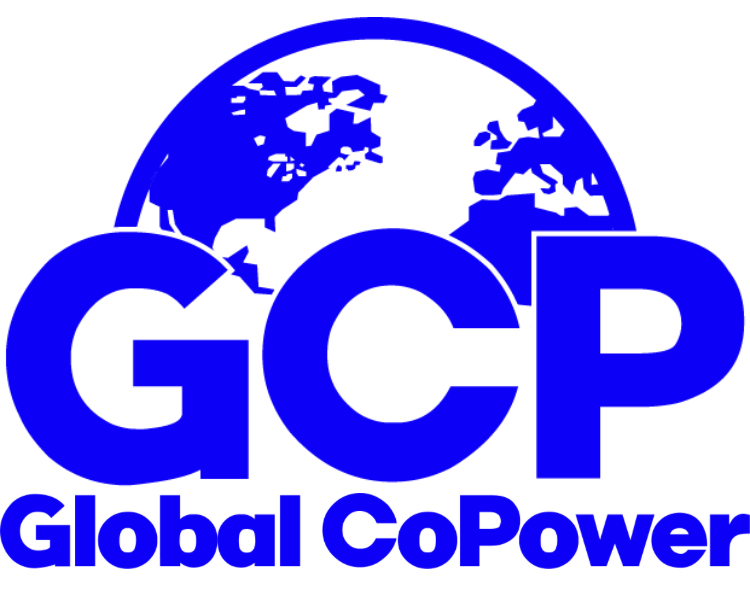

The experience was memorable for the Syracuse student team.
“Our team literally didn’t sleep” said Shumer. “We were driven. We went from many ideas to customer discovery, iteration, and complete pivots. When we arrived at the ultimate solution, we raced against an impossible timeclock to execute it. We were able to accomplish so much because we had diversified skill sets that allowed each of us to run full speed independently, while working within a team framework. Early on, we decided we wanted to do something that would create a meaningful impact. That’s what kept us motivated and focused.”
After discarding nearly two dozen potential approaches, the team came back to an idea that Shumer had when he first walked into the LaunchPad. “Day one, when I arrived, I was fascinated with two technologies. One was virtual reality, which led to the creation of my venture Visos, a VR tool in the healthcare space. The second was distributed computing.”
After 30 hours of inventing from scratch, the team realized that breakthroughs can also come from improving upon existing ideas. They had been following Folding@Home, a distributed computing project to accelerate therapeutics for diseases like Alzheimers and Huntington’s. They saw the project was beginning to address COVID-19 with protein folding, which studies how viral proteins reproduce and suppress our immune systems. They knew it could help accelerate the development of targeted therapeutics.
Folding@Home is currently based at Washington University in St. Louis and led by Dr. Greg Bowman. The Syracuse team knew that Folding@Home’s progress is dependent on the simulations run on volunteers’ personal computers, in the race to create one of the world’s fastest computing systems. They also realized there wasn’t enough volunteer desktop power to get to a COVID-19 solution faster. Shumer hypothesized that power could be leveraged on mobile devices and the team created an app to unleash unused capacity on user phones around the world. That led to the name, Global CoPower, reflecting a cooperative approach to co-powering a COVID-19 solution.
The business model, like other distributed computing projects, is a social impact venture in which companies, brands and individuals can easily participate. Students around the world could be recruited, using gamification, corporate and brand partnerships for mutual global gain. The goal was not monetization. It was getting to a scientific breakthrough faster.
“In the end, we realized we could easily code a solution that would make a huge impact,” said Shumer.
“It was an incredible experience that honed our ability to think on our feet as a team,” said Hollander. “In a classroom setting, you work with people in a project team that is mostly drawn from your own discipline. It was amazing to work with people who come from different interdisciplinary perspectives, working across campus and around the country, to explore, iterate and rapidly create a solution. It was really exhilarating.”
Schumer and Hollander participated in Techstars LaunchPad Startup Weekend in LA last spring and helped organize the first Syracuse University Techstars LaunchPad Startup Weekend in September 2019. They led the Global CoPower pitches for two rounds of Startup Weekend Remote USA.
Other team members also played instrumental roles and came away with profound experiences.
Howard gleaned a great deal about both the challenge and the creative energy that comes with problem solving. “This experience gave me a unique perspective on how the world is coming together to solve this problem. We saw how hard we were working, and through our discovery process, we learned how hard the world is working on so many fronts. This made me very hopeful for the future. It was amazing how much we could accomplish is a short period of time. We made so many pivots as we explored various facets of the problem, we became constant idea machines for the entire weekend. That made it even more exciting.”
Feldstein said, “The weekend was really eye-opening, and taught me how innovation can be accelerated when great minds come together.”
Adler participated from Brazil, where he lives. “I’ve always been in love with the startup way of working. One of my dreams has always been to work hard on something that could change the world. But honestly, I never seemed to find people as passionate as me. This weekend that changed. It was one of the most fulfilling experiences of my life.”
Serving as facilitator was Brian Kam ’16 founder of Thrive Projects and an original LaunchPad student when it opened in SU Libraries four years ago. The LaunchPad called him back into service to work with the freshmen and sophomores engaged in the challenge. He is a veteran entrepreneur who has devoted his life to public service, serving as a combat Marine in the Iraq War, and now in the trenches fighting COVID-19 as a frontline health care worker.
“The weekend was fast and furious,” said Kam. “I was amazed at how much the tech landscape has transformed the entrepreneurial space. Things that took us weeks just a few years ago can now be done in minutes using AI, machine learning, and other tools that weren’t mainstream then. I was blown away by how smart this next generation of entrepreneurs are. I truly enjoyed working with this team. They were laser focused, as they kept ideating and iterating.”
Kam’s medical research and experience working with COVID-19 patients was indispensable throughout the weekend, helping them balance tech solutions with human needs.
Working with the team through the weekend was LaunchPad executive director Linda Hartsock, who was selected by Techstars to be a mentor for the U.S.A. event. “When Syracuse innovators put their hearts and heads to work on a problem, their hard work, intellect and ingenuity always rises to the top. We couldn’t be prouder of them.”
